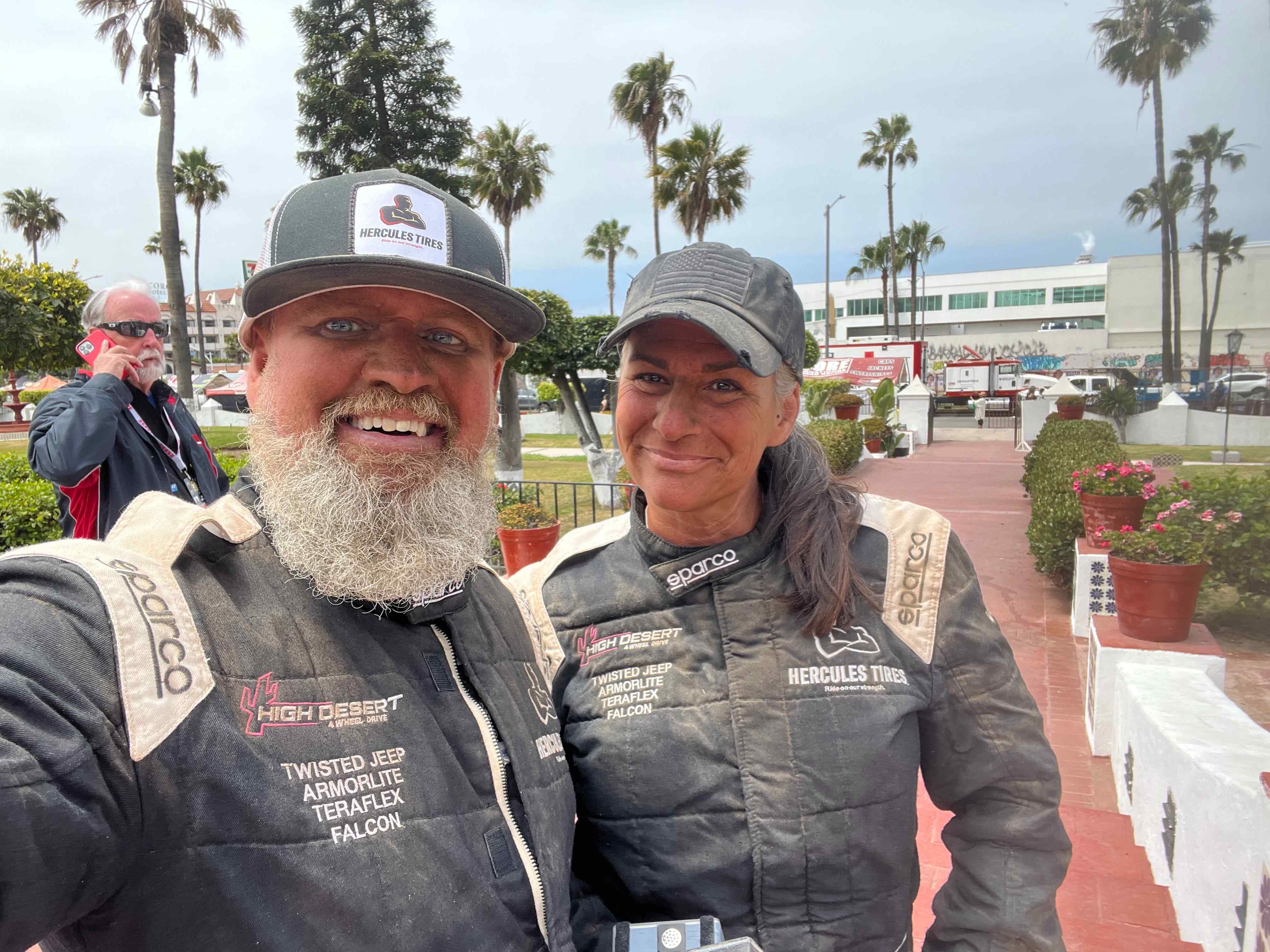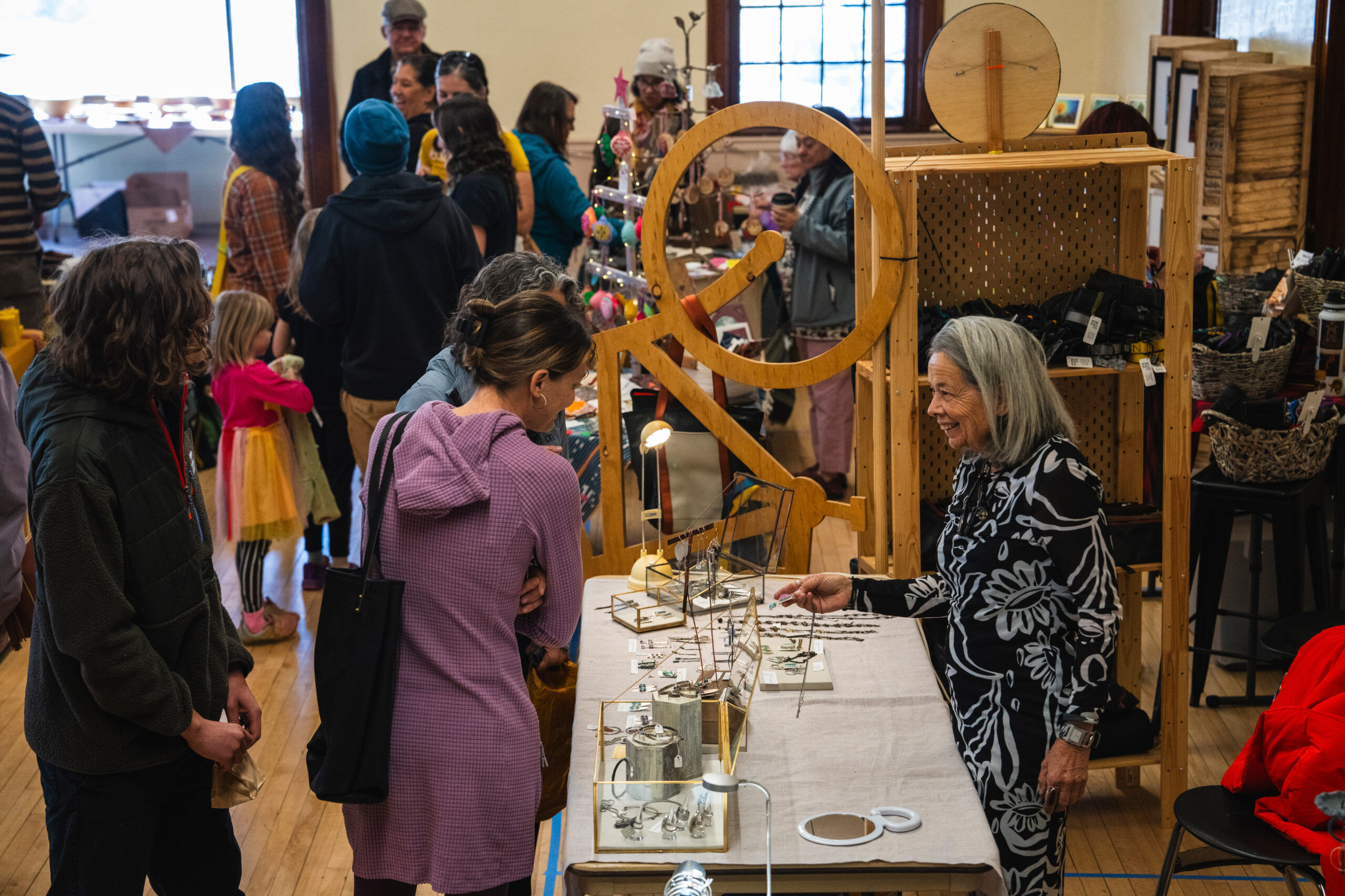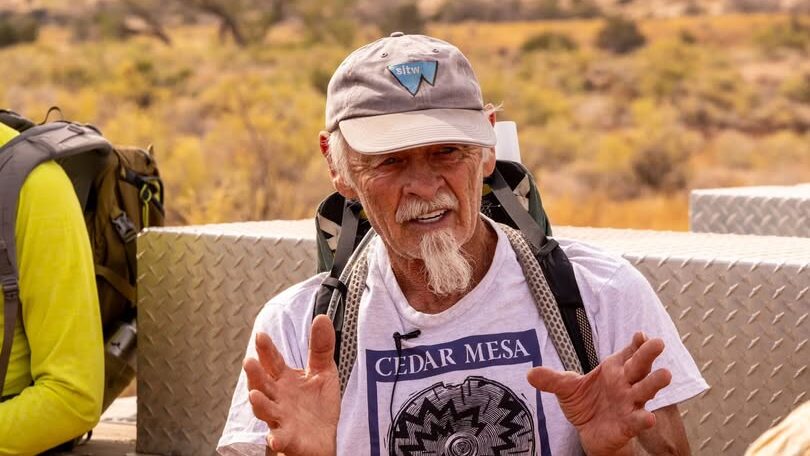Some information may be outdated.
In the world of off-road racing, the Baja 500 is perhaps the crown jewel. When participants meet at the starting line, 500 miles of unforgiving terrain lie between them and completing one of the most challenging courses in motorsports. Only around 40% of them will rise to the challenge – just finishing the loop is considered a monumental achievement.
This year, two teams from Moab entered the world-renowned race. The journey leading up to the race itself was full of ups and downs, as decades-long dreams were fulfilled, the local community shone in tough spots, and race-day camaraderie prevailed to send both teams across the finish line.
John Marshall has dreamed of finishing the Baja 500 since he was 16 years old, when he picked up a date for the movies at her dad’s shop and spotted five Baja race cars lined up.



Marshall moved to Moab in the early 2000s and brought with him a love of off-road driving. He owns Coyote Adventure and Coyote Land Tours, where he trains adventure seekers. His son Jamie, who grew up driving as well, is the owner of Coyote All Wheel Drive and is the lead off-road driving instructor for Bronco Off-Rodeo. It’s safe to say that off-roading is a family passion.
The elder Marshall joined a Baja support crew for the first time in 2018, but it wasn’t until he met his eventual driving partner, Jeff White, that he entered the race as a driver. Jamie also has been on the support crew side since 2018 and began driving in 2020. SCORE International sanctions the race, and vehicles are categorized across classes depending on their type and components (each class has a winner in addition to the overall winner).
“Team No Zombie,” the crew’s moniker, has attempted the race across different classes over the last seven years, transitioning from Class 11 stock Volkswagen Bugs to racing in a Mercedes Benz G-Wagen – but Marshall has never crossed the finish line. For the last four years, they’ve run the G-Wagon that they built out themselves, and fully self-funded – not an easy feat, as just entering the race is an expensive and time-consuming task in itself.
This year, Team No Zombie struck the jackpot, earning a sponsorship from Sylvania Off-Road. A couple of weeks before the start, off-road lights were affixed and the truck had a new coat of paint, fresh body work, and was 100% race ready – until it wasn’t.
On a quick test drive to practice the intercom systems with their co-drivers, the truck rolled and sustained catastrophic damage. No one was injured, but all of Sylvania’s brand-new lights were smashed, the driver’s side was pushed in about six inches, and it looked like hope was lost.
Sylvania agreed to still sponsor the team in the unlikely event that the truck could be saved. John had been working in Green River for the day and returned to his shop in the late afternoon, expecting to find Jamie and a couple of other people performing a post-mortem on the truck.
“I come home, there’s 25 people in my shop,” John said. “Most of them, I don’t even know who they are. And they’re all taking parts off, they’re hammering out dents.”
To John, it seemed like the entire Moab community had come together to help him chase his dream. For days, people cycled in and out of the garage, straightening out the body, adding new parts, and freshening up the decals.
A week later, the Mercedes was lined up at the start line, looking as good as ever.
The Marshalls weren’t the only Moabites to make the trek to Baja. Jim Horne has been racing off-road vehicles for about 15 years now, and, like so many off-roaders, always saw the Baja 500 as the pinnacle of racing. Horne owns High Desert Four-Wheel Drive and has lived in Moab for the better part of the last decade.
He and his wife Barb attempted the race three years ago in their 2020 Jeep Mojave, but after a crash left them unable to complete it, they came back this year for another go. They’ve known the Marshalls for years through the tight-knit off-road community.
Both teams had overcome a lot to get to Baja, and the challenges were just getting started. Despite racing in different classes, the two groups – perhaps serendipitously – set out one after the other and leapfrogged each other on the course for the first several hundred miles.
All Baja racers are supported by pit crews, who follow them in chase cars and help with repairs and gas refills when the rugged route crosses highways. Tyler Fudge, another Moabite, acted as logistics coordinator for the Hornes for the second year this year.
“Any time you’re going off-road at speed, things like to break,” Fudge said. “The focus and patience it takes to keep the truck between the ditches and in one piece for 500 miles is a true feat. Imagine doing the White Rim five times in one day – but Baja is way more rugged.”
For the Marshalls, it soon became clear that there may have been peripheral damage from their roll that hadn’t fully been addressed. Exhaust issues melted the throttle cable, and the brakes were shot, but several roadside quick fixes kept them moving.
Meanwhile, the Hornes were running into their own problems. At 3:30 a.m., around mile 400, their GPS blanked out. In the dark of the Mexican desert, with only waypoints to go by, the two of them quickly found themselves off course.
At this point, it was clear that neither team was going to finish by the cutoff time. With less than 100 miles to go, the Hornes were contemplating throwing in the towel. That’s when they got in touch with John, who let them know that Jamie was only about 45 minutes back from their location.
“I told Jim, ‘You either finish it or you don’t – which one would you regret a week from now?” John remembered. In a flash, the decision was made – both teams from Moab were going to cross that finish line, no matter how long it took.
Jamie caught up to the Hornes in the Mercedes, and they followed him slowly but surely through the tricky terrain. At one point, Jamie realized he had lost them on a deep corner and had to backtrack and pull them off. Just a few miles later, Jamie got stuck in a hole and Jim provided a needed hitch.
“It was the perfect level of serendipity, of being able to help him and he was able to help me,”
Jamie said. “We were tag-teaming it and we had each other’s backs.” At one point, John even handed off his spare hand-held navigation system so that Barb Horne could continue to map the route.
They continued this way for the last several miles and, within five minutes of each other, both teams crossed the finish line of the Baja 500, just a few hours after the official cutoff.
When asked how it felt to have his team finally complete the course, John Marshall was reflective.
“It’s hard to explain something that you had thought about since you were 16 years old,” he said. “Every ounce of effort and every dollar that has gone into it… it’s hundreds of hundreds of hours behind the wheel pushing towards that finish line that’s eluded you, and then you finally put a vehicle across it.”
For Jim Horne, the achievement is also a reflection of the Moab community.
“Without a lot of people standing behind us, we wouldn’t be racing that truck. It means everything to me to have local help and to feel local,” he said. He credits the “racer’s spirit” that prevailed in those final miles, with the two Moab teams working together to make it happen.
“There is nothing in my life that has ever come close to the camaraderie of Baja racers,” John Marshall said, “And then I see that extending its reach into the neighborhoods and back streets of Moab, and people coming out to show that same desire to help.”
From the community coming together to rebuild a truck in the leadup to the event to the back-and-forths on the course as the Marshalls and Hornes helped each other out of tricky spots, it’s clear that this achievement is shared between these two stellar teams.
“To have those people in your corner, you know when you pull into that pit, no matter what happens, they got your back,” Horne said.
“We couldn’t have done it without [Jim] and he couldn’t have done it without us,” John Marshall said. “We’re just grateful that we had each other’s back.”
Appreciate the coverage? Help keep local news alive.
Chip in to support the Moab Sun News.




